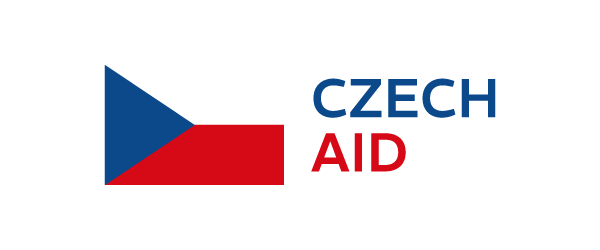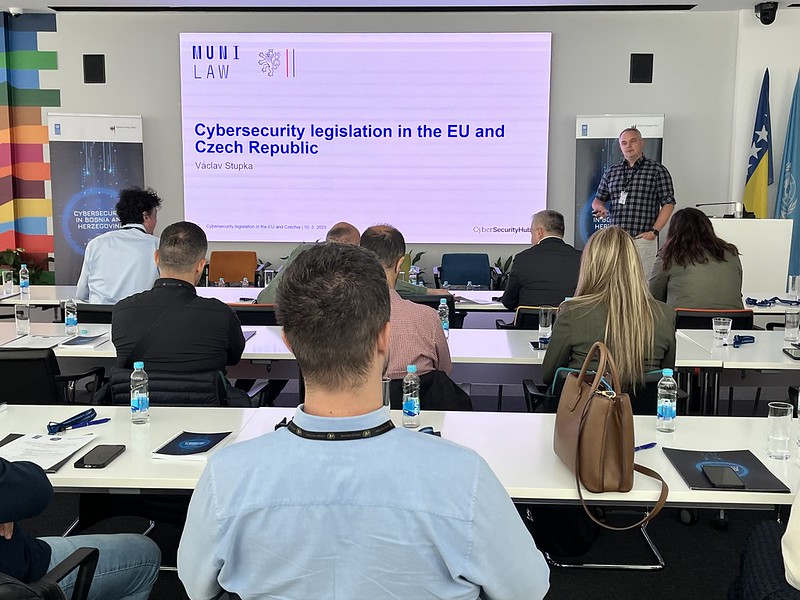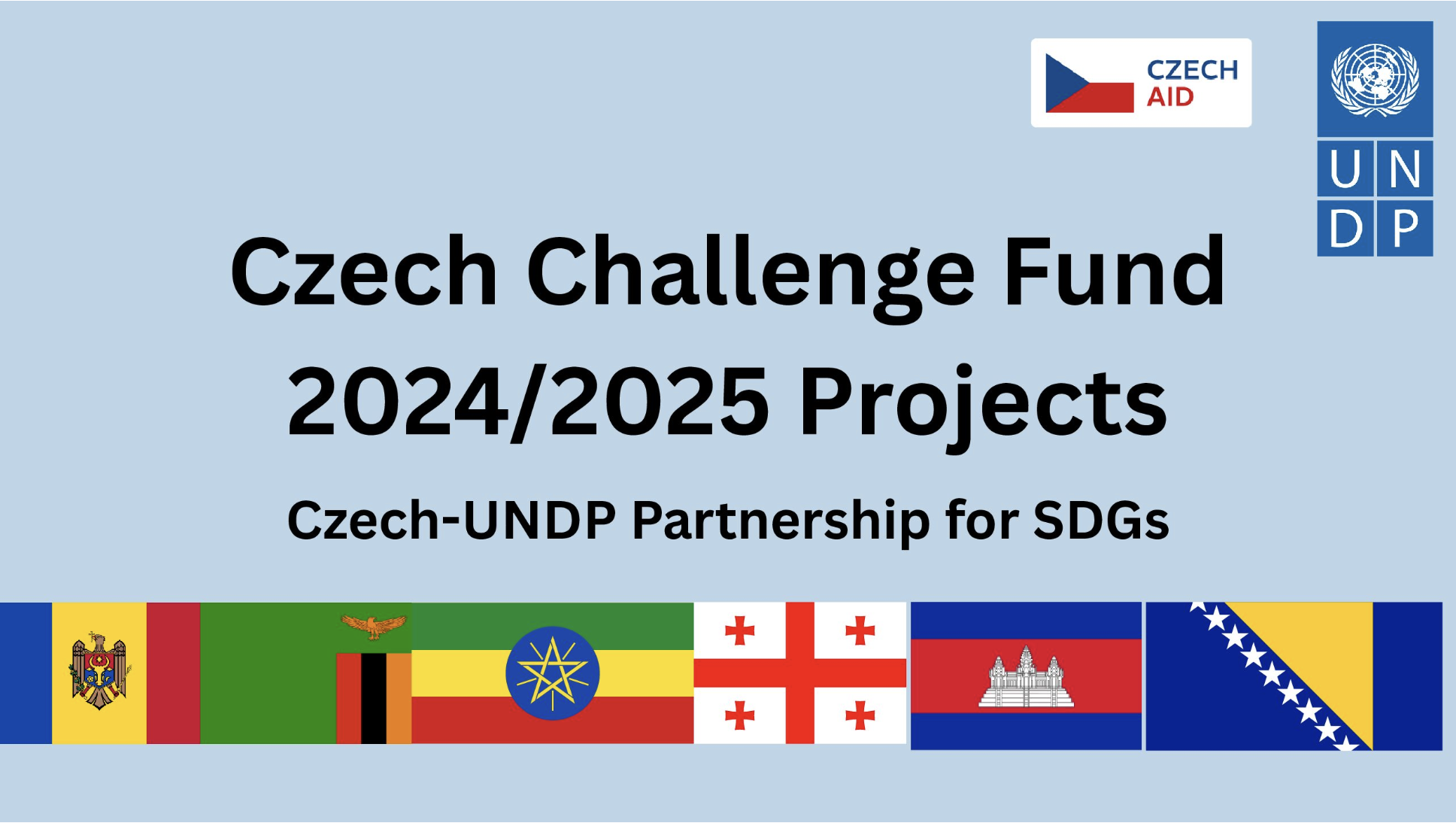The theme of this year’s International Mountain Day (IMD) is sustainable mountain tourism.
FAO notes that sustainable tourism in mountains can contribute to creating additional and alternative livelihood options and promoting poverty alleviation, social inclusion, as well as landscape and biodiversity conservation. The number of tourists dropped due to the COVID-19 Pandemic. In mountains, the restrictions of the pandemic have further compounded the vulnerabilities of mountain communities. This crisis can be seen as an opportunity to rethink mountain tourism and its impact on natural resources and livelihoods, to manage it better, and to harness it towards a more resilient, green and inclusive future. From the promotion of Green Tourism in Bosnia and Herzegovina to drafting waste management and Disaster Risk Reduction plans in Georgia, several CUP projects share the common interest and passion about mountains, their exploration and protection.
Waste Management plans for Georgian Mountains and protected areas
Tourism in mountains can contribute to creating local economic opportunities but it also impacts natural resources and livelihoods. Waste collection and waste management remains a challenge in many mountainous areas. In Georgia, two Challenge Fund projects provided a blueprint for handling waste management in a more effective manner.
CUP’s very first Challenge Fund call for applications was, among others, awarded to Caritas Czech Republic who completed their project Development of sustainable waste management system in Pshav-Khevsureti protected area and adjacent mountainous territories together with Dusheti Municipality and Protected Landscapes Administration, Georgia. Together with their local partners, Charita drafted the waste management plan and action plans. The project benefited nearly 200 residents as well as additional 10,000 tourist who visit Pshav-Khevsureti protected area every year.
A Czech NGO ENVIROS won the 2019 Challenge Fund support to develop a Waste Development Plan – Independent recycling community in Kazbegi region. The project provided its Georgian partners with an integrated and strategic approach to waste management in the rural mountainous areas of Georgia.
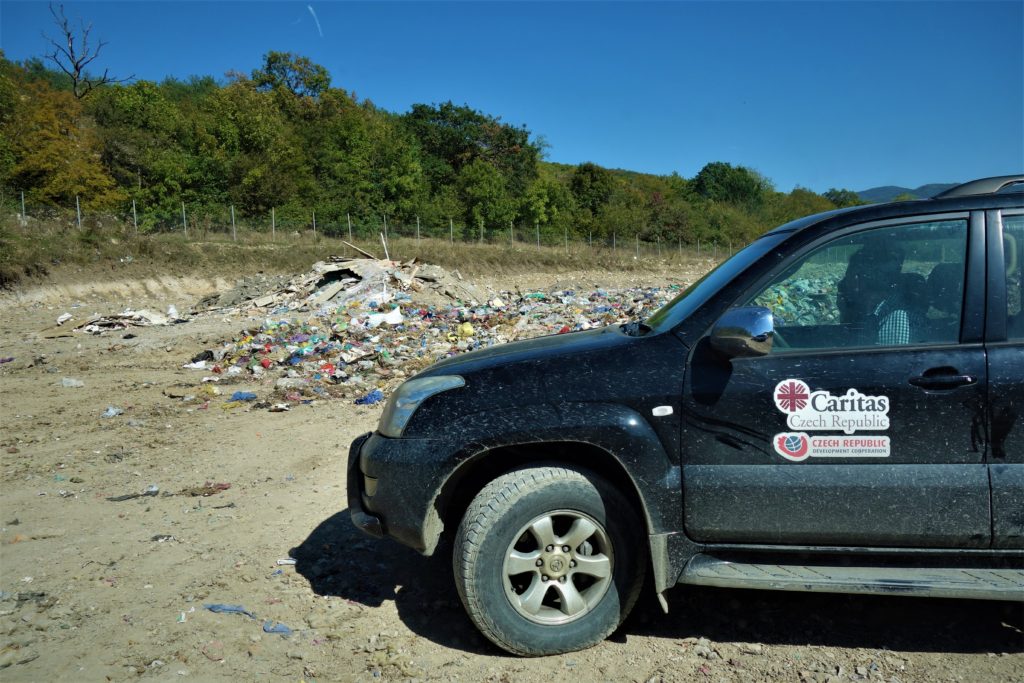
Waste Management Planning in Georgia 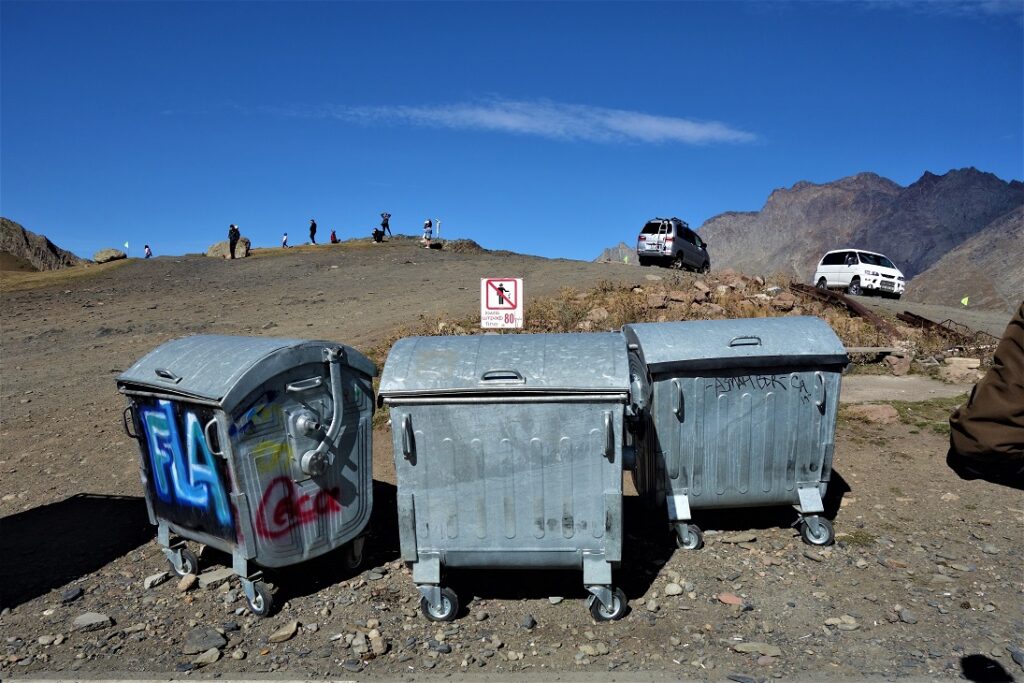
Waste Management Planning in Georgia 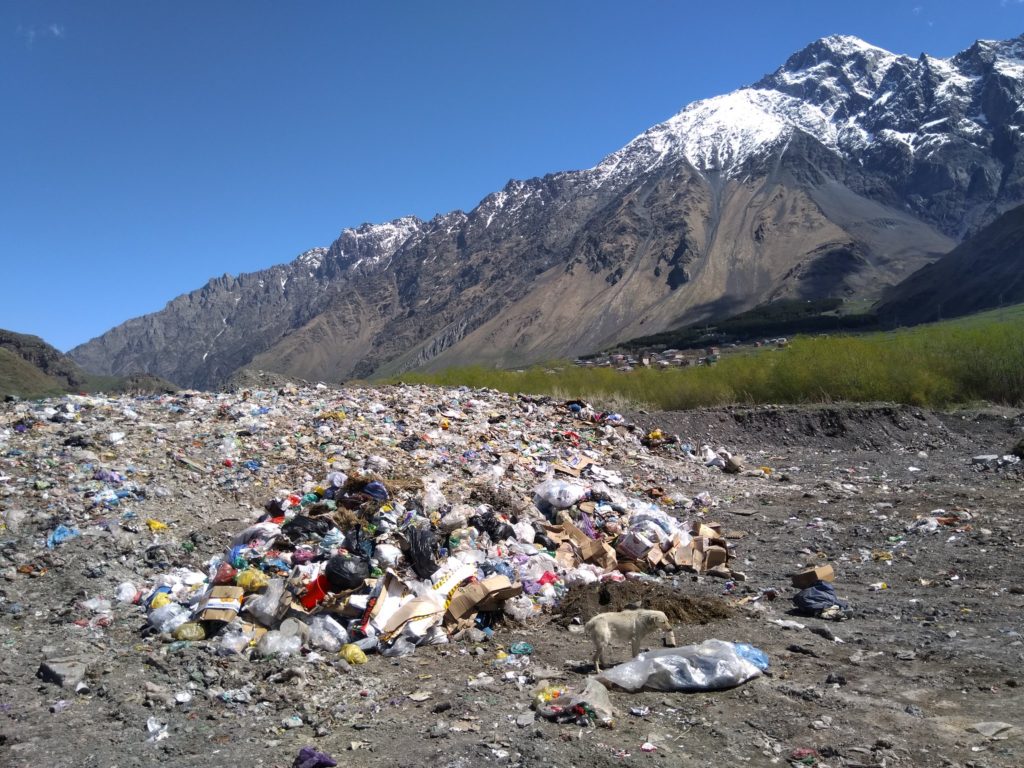
Waste Management Planning in Georgia
Disaster Risk Reduction in Georgian Mountains
Getting prepared for potential disasters and DRR planning itself are not a new phenomenon. Communities around the world work to reduce their exposure to disasters. Recently, modern technology, such as the FLOW2020 software, makes DRR planning more effective. FLOW2020 is a web-based interactive program that leverages freely available data, which are updated automatically. The software makes the preparation of field missions easier. Another advantage of the application lies in the ability to insert data collected during fieldwork into the spatial analysis that provides detailed information. This work is currently ongoing for Kazbeg-Dzhimara Mountain massif. The focus area, with its size around 150 km2, is historically known for frequent catastrophic debris flow. The ongoing project wants to make full use of the software to create an interactive Debris Flow/Mudflow susceptibility map covering the whole Kazbek-Dzhimara Mountain massif.
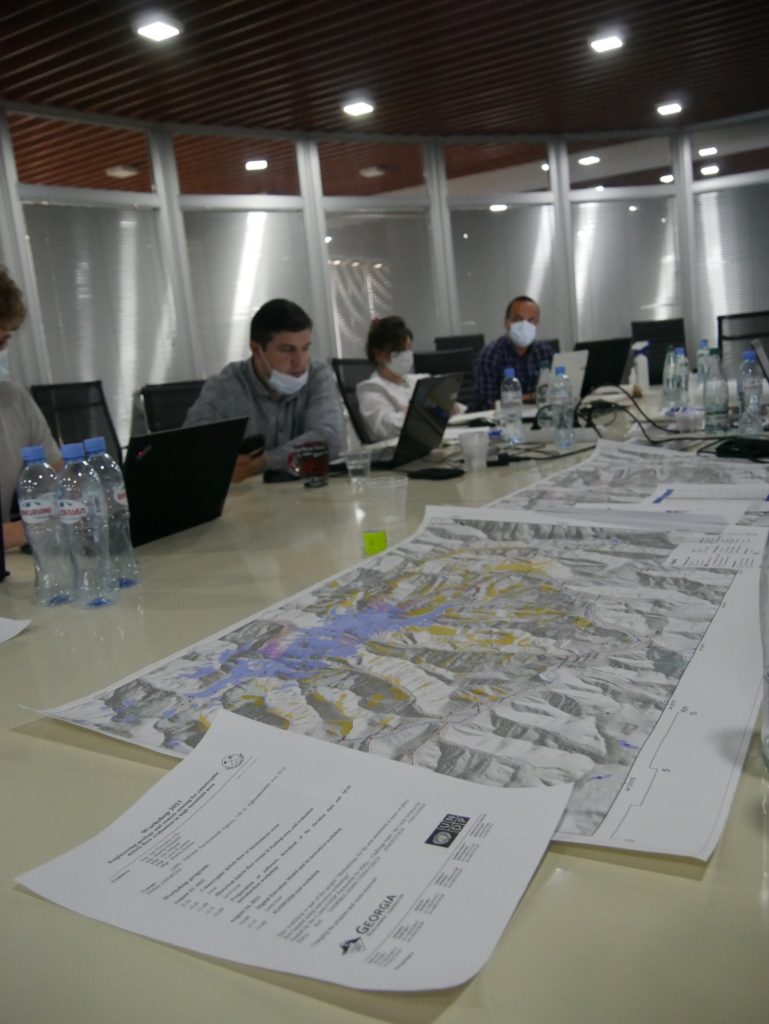
Czech Geological Survey in Georgia 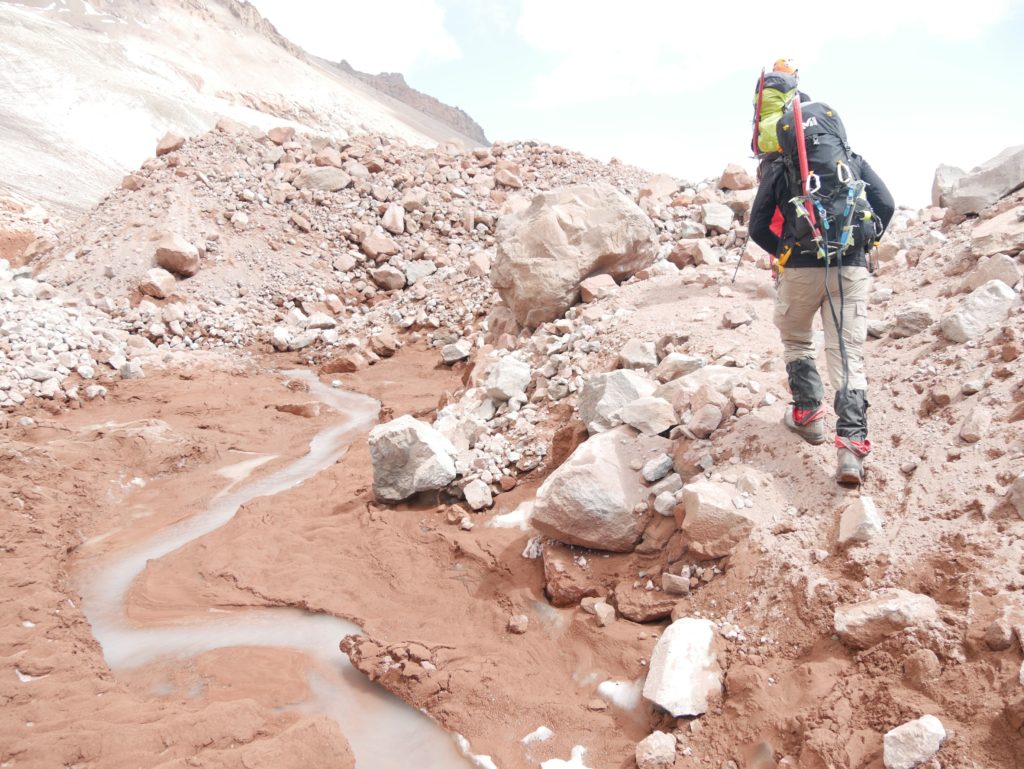
Czech Geological Survey in Georgia 
Czech Geological Survey in Georgia 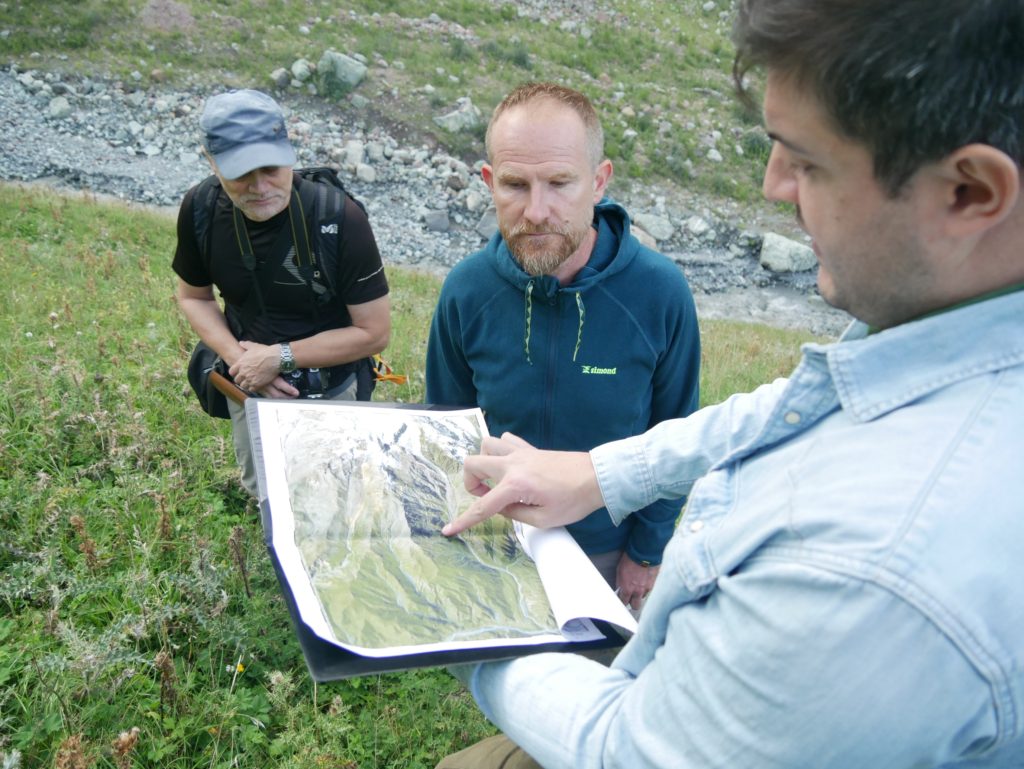
Czech Geological Survey in Georgia
George Gaprindashvili, Head of Disaster Processes, Engineering-Geology and Hydrogeology Division at NEA, Department of Geology, who is strongly committed to the project, provides more information about the project relevancy.
Among the multi-spectral geological hazards in Georgia one of the most impressive phenomena is debris/mudflows. Settlements, land plots, roads, oil and gas pipelines, high voltage power transmission towers, etc are periodically affected by the strong impact of geological disaster. Assessment of geological hazards is very important for country. In the framework of this project for assessment of debrisflows and mudflows modern methodology will be used, including field geological investigations and newly developed software application.
George Gaprindashvili, Head of Disaster Processes, Engineering-Geology and Hydrogeology Division at NEA, Department of Geology
Smart Guide and social media campaign for the Sutjeska National Park in Bosnia and Herzegovina
Sutjeska National Park is the home to one of the last virgin forests in Europe. While a popular place to visit, local tourism sector was heavily hit by the COVID-19 pandemic. Support of Green Tourism has been one of the priorities of the UNDP Accelerator Lab in Sarajevo and local authorities. To make Sutjeska more accessible and safe at the same time, the Challenge Fund supported development of a Sutjeska Smart Guide phone application by Smart Guide. The guide is now available for all visitors of the Sutjeska National Park in 3 languages. The digitized content of the guide, which will be available in multiple languages for offline download at the entry to the park. It provides visitors with audio guides, augmented reality features as well as an option to notify the park management in case of any trouble or danger. The project also helped to resolve the shortage of human resources by providing comprehensive up-to-date information.
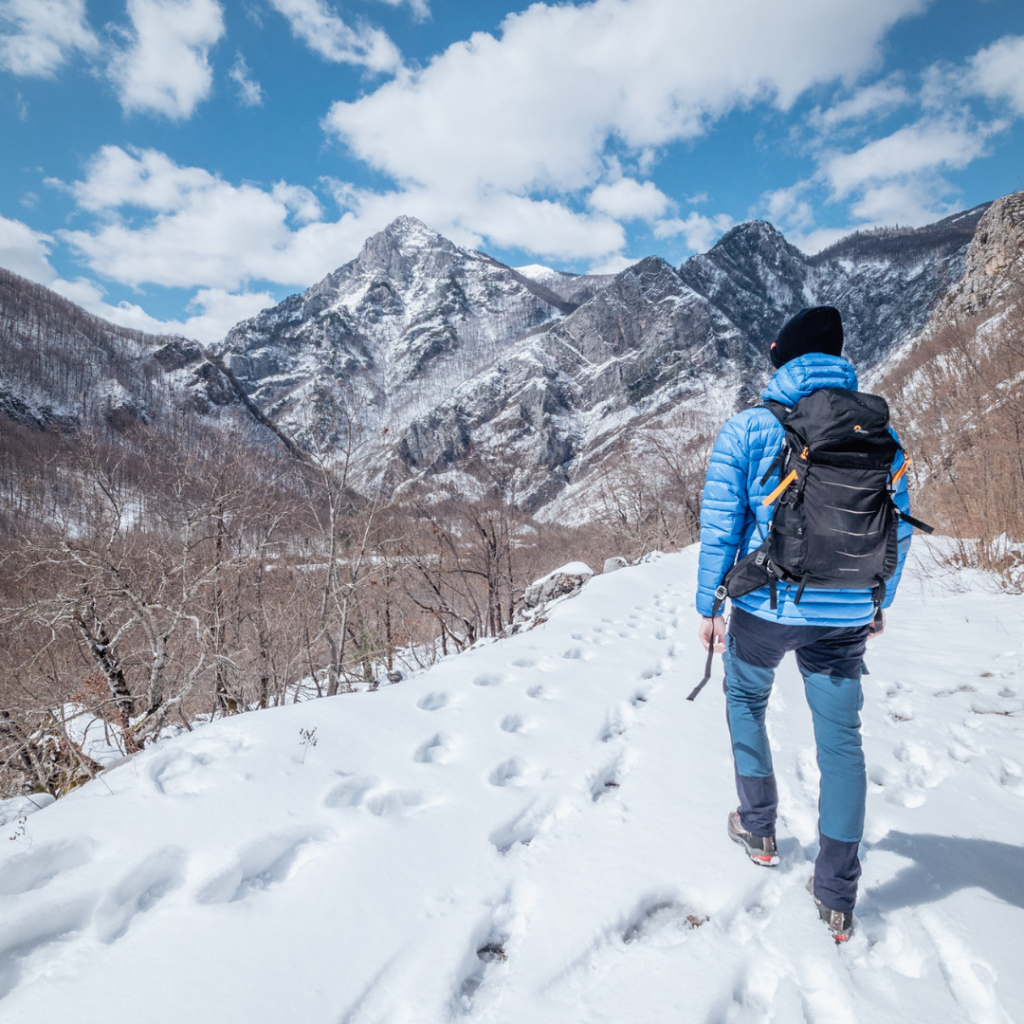
Sutjeska NP 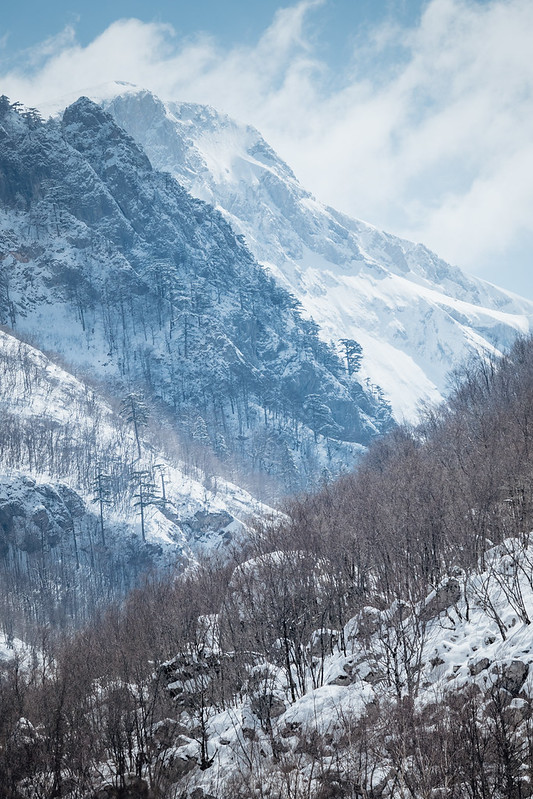
Sutjeska NP 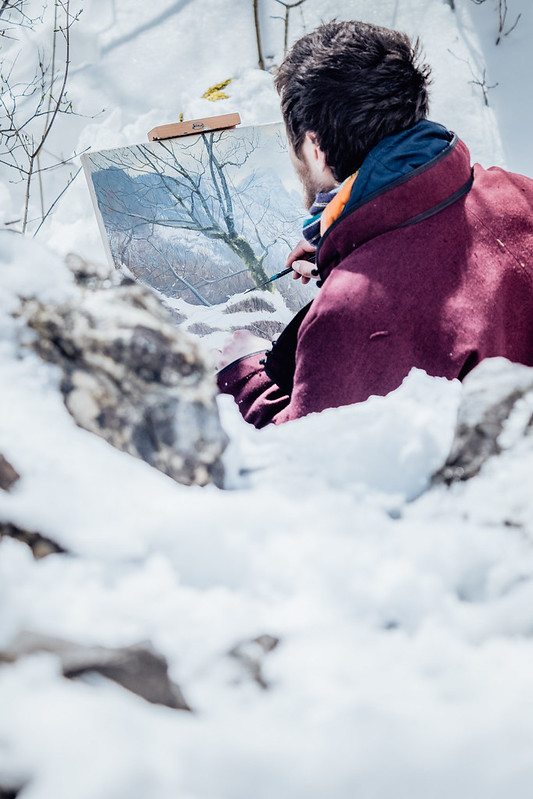
Adam Kašpar in Sutjeska 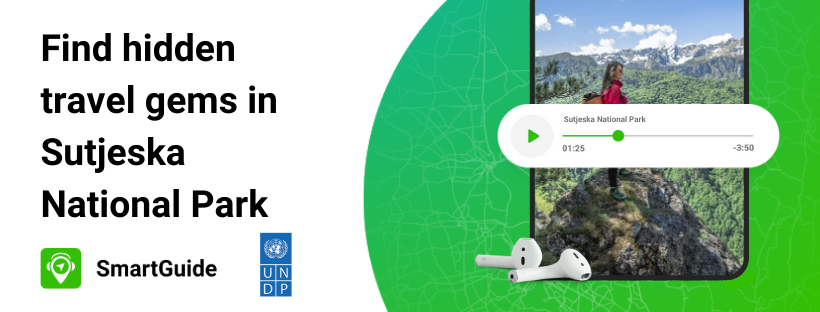
Smart Guide application – 2020 Challenge Fund
To highlight the richness and beauty of Sutjeska National Park, Czech UNDP Partnership for SDGs havs teamed-up with a well-known Czech traveller Tadeas Sima and with a famous Czech artist Adam Kaspar, who both agreed to become faces of the Green tourism campaign for Sutjeska National Park. Together they promote green and sustainable tourism in Bosnia and Herzegovina in a creative way for Czech and Slovak audiences through mainstream media and their social media channels.
If you understand Czech, you can view or listen some of Adam’s and Tadeáš’ stories below.
- Czech Television (ČT) Objektiv show Bosna a Hercegovina: Sutjesky
- Interview Radio1 (Czech) Ešus 3/5/2021: Tadeáš na kole z Ománu do Prachatic
- Interview Radio Wave (Czech): Vášeň pro pralesy. Malíř Adam Kašpar na cestách portrétuje divočinu
About the project
Through the Challenge Fund, the Czech-UNDP Partnership for SDGs brings innovative solutions from the Czech Republic’s private sector, NGOs, universities, state institutions, research centres and individuals to tackle specific developmental challenges in the priority countries.
Through the Expertise on Demand, Czech expertise is shared via hands-on experience and trainings in the partner countries. The implementation of the Challenge Fund and the Expertise on Demand (EoD) projects were financially supported by the Ministry of Foreign Affairs of the Czech Republic.
The content of this material does not necessarily represent the official views of the Ministry of Foreign Affairs of the Czech Republic, or of the United Nations, including UNDP, or UN Member States.
